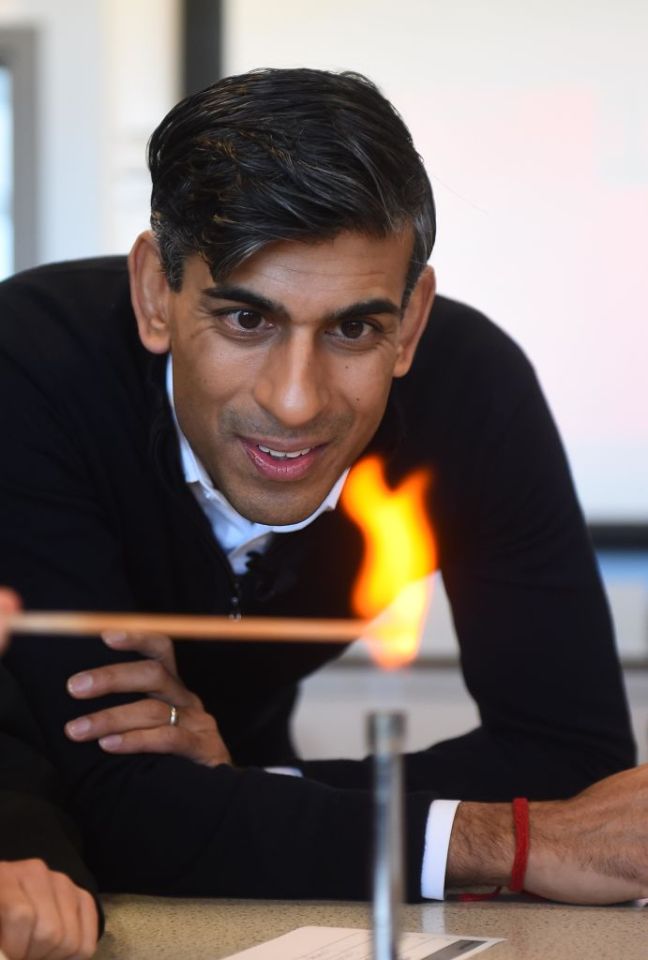Sunak’s belief in the Rwanda scheme is based on magical thinking

Rwanda has always been an ill-conceived policy with little evidence, but Rishi Sunak is willing to bet everything on it, writes Eliot Wilson
It is often in adversity that leaders really show their mettle and thrive. Rishi Sunak must be hoping so, after the Supreme Court gave his flagship immigration policy a judicial beating last week. The plan to direct a proportion of asylum seekers to Rwanda, devised by Boris Johnson and Priti Patel, had been championed by Suella Braverman, the now former Home Secretary.
The judgement was unequivocal: there was a significant risk that applicants processed in Rwanda would not be properly assessed and they might be returned to their place of origin where there is a risk of persecution. Crucially, this meant the policy was unlawful not just according to international treaties but also in UK law.
The Rwanda policy was conceived to show that the government was determined to reduce the number of asylum seekers or illegal immigrants crossing the English Channel in small boats. The truth is that, in a typically Johnsonian way, it was a gesture, an appearance of action which had no mooring in practicality and no guarantee of effectiveness.
The initial agreement made no mention of how many migrants would be diverted to Rwanda, but last year, while Boris Johnson talked of “tens of thousands”, the Rwandan government admitted it had at that point the facilities to accommodate a maximum of 200 applicants. To put that in context, 45,755 migrants arrived in small boats in 2022. So the quantum was so tiny a pinprick as to be laughable.
Patel, the then home secretary, claimed that this was a small part of a wider deterrent effect. She adduced no evidence, and instead repeated the assertion more emphatically. This had consequences: in April 2022, the Home Office’s permanent secretary, Sir Matthew Rycroft, told Patel that the policy would only represent good value for money if it had a substantial deterrent effect. Absent that evidence, he, as principal accounting officer, requested a written ministerial instruction to proceed.
So the policy was based on a belief, an act of faith, that potential migrants would be deterred from crossing the Channel if they believed they might end up in Rwanda instead. Yet the numbers showed that the chances of that happening were tiny, only a few per cent. Tellingly, earlier this year, the now-departed Braverman refused to allow members of the Public Accounts Committee, the Commons’s fearsome spending watchdog, to see the financial details of the deal with Rwanda. They could not even see the documents in private, under supervision. It does not take too hard-bitten a cynic to come to the conclusion that the scheme is proving hugely expensive, certainly on the basis of cost per applicant processed. Rycroft was right to request that direction.
Last week the prime minister had a choice. A policy he had not initiated, and whose cheerleader he had just dismissed, had been ruled unlawful. His new home secretary is cut from less crudely abrasive cloth. With a year until a general election, the Rwanda plan would have made next to no difference to migrant numbers.
Instead of pausing and reflecting, Sunak has doubled down. He will agree a treaty with Rwanda with specific guarantees for applicants, and introduce emergency legislation next week to declare the country “safe”. That may be an optimistic estimation: expect hard-pounding trench warfare in the House of Lords.
Sunak says this is the will of the British people. That is dubious. Initial polling suggests majority support to remain a signatory to the European Convention on Human Rights; 39 per cent favour dropping the Rwanda plan altogether, while another 29 per cent would prefer finding another partner country. At best, then, Sunak is appealing to a third of voters.
The problem is real, and voters care. Half the electorate thinks immigration should be reduced; likely Conservative voters rate it as their third most important issue (likely Labour voters rank it fifth). But there is no scenario in which the government achieves a significant reduction in migrant crossings within the next year through the arrangement with Rwanda.
The prime minister is asking voters to have faith that he has the right principle on immigration and only needs time. To me, that looks like a curiously oxymoronic combination of a lack of imagination and what Suella Braverman described as magical thinking. But it would take magic of a very high order to see it as a plan which helps win an election.